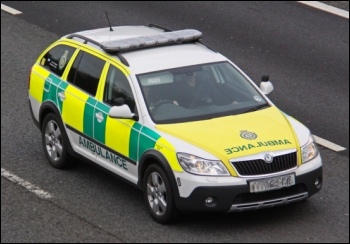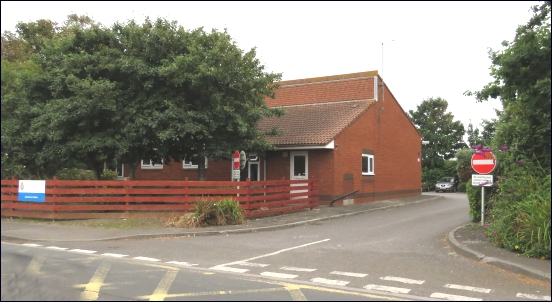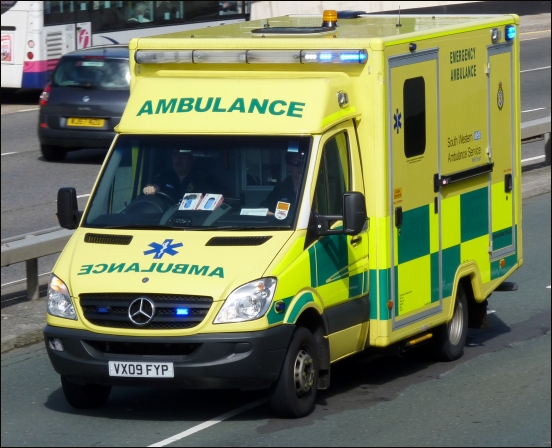Burnham-On-Sea’s ambulance service is being cut back from the start of July, although bosses say patient care won’t be affected.
Burnham-On-Sea.com learns that from July 3rd, an ambulance is being removed from Burnham Ambulance Station for 12 hours every day on the late shift.
A Rapid Response Ambulance car is instead being introduced for six hours a day – meaning that Burnham’s overall base level cover is being reduced by six hours every day.
 Burnham’s ambulance service provision – with one ambulance and one rapid response car – is now at its lowest level for over 15 years.
Burnham’s ambulance service provision – with one ambulance and one rapid response car – is now at its lowest level for over 15 years.
Rebecca Weale, a spokesperson for South Western Ambulance Service NHS Foundation Trust (SWASFT), told Burnham-On-Sea.com: “Burnham Ambulance Station remains a key location for SWASFT and a 24 hour Double Crewed Ambulance remains in Burnham and although the daytime/late Ambulance is being removed, a Rapid Response Ambulance car (RRV) cover has actually been increased with cover extended from 0800-2000 to 0800-0200.”
The changes coincide with Weston General Hospital’s decision to close its A&E unit between 10pm and 8am daily from 4th July in what it says is a temporary change, as we reported here last month.
The SWASFT spokesperson went to add: “On 3rd July South Western Ambulance Service resources across our East and West Divisions will increase with more vehicle and staffing hours to better meet patient demands across the region, particularly at peak times to improve patient experience.”

“This is in response to the national Ambulance Response Programme (ARP) which will improve response times to critically ill patients. It will make sure that the best, high quality, most appropriate response is provided for each patient first time.”
“SWASFT’s Rota Review project aims are to have the right number of staff on duty at the right time and in the right place – meeting peak demands.”
“The benefits for North Somerset are an increased availability of Double Crewed Ambulances (DCAs), replacing some Rapid Response Vehicles (RRV), and this means more DCAs at peak times running in North Somerset.”
“As a direct result of the rota review the model predictions (made last year) found that patients dialling 999 will receive an improved response.”







